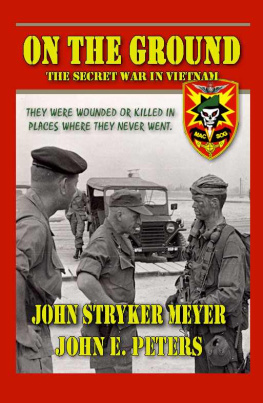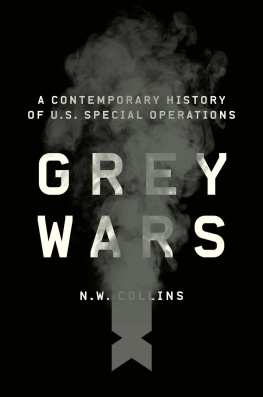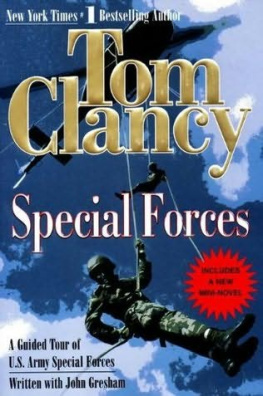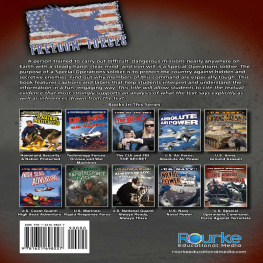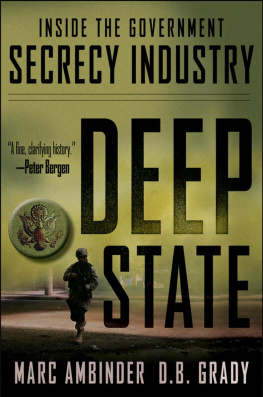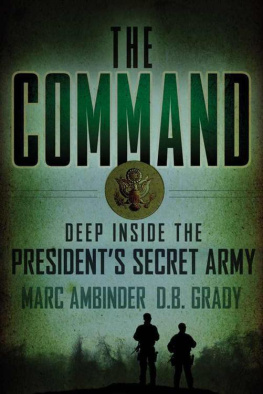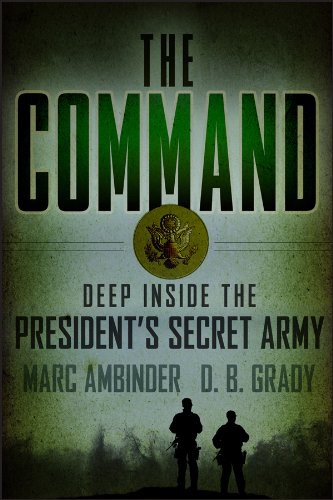Contents
The Command
Deep Inside the Presidents Secret Army
Marc Ambinder
and
D. B. Grady

John Wiley & Sons, Inc.
Copyright 2012 by Marc Ambinder and D. B. Grady. All rights reserved
Published by John Wiley & Sons, Inc., Hoboken, New Jersey
Published simultaneously in Canada
No part of this publication may be reproduced, stored in a retrieval system, or transmitted in any form or by any means, electronic, mechanical, photocopying, recording, scanning, or otherwise, except as permitted under Section 107 or 108 of the 1976 United States Copyright Act, without either the prior written permission of the Publisher, or authorization through payment of the appropriate per-copy fee to the Copyright Clearance Center, 222 Rosewood Drive, Danvers, MA 01923, (978) 750-8400, fax (978) 646-8600, or on the web at www.copyright.com . Requests to the Publisher for permission should be addressed to the Permissions Department, John Wiley & Sons, Inc., 111 River Street, Hoboken, NJ 07030, (201) 748-6011, fax (201) 748-6008, or online at http://www.wiley.com/go/permissions .
Limit of Liability/Disclaimer of Warranty: While the publisher and the author have used their best efforts in preparing this book, they make no representations or warranties with respect to the accuracy or completeness of the contents of this book and specifically disclaim any implied warranties of merchantability or fitness for a particular purpose. No warranty may be created or extended by sales representatives or written sales materials. The advice and strategies contained herein may not be suitable for your situation. You should consult with a professional where appropriate. Neither the publisher nor the author shall be liable for any loss of profit or any other commercial damages, including but not limited to special, incidental, consequential, or other damages.
For general information about our other products and services, please contact our Customer Care Department within the United States at (800) 762-2974, outside the United States at (317) 572-3993 or fax (317) 572-4002.
Wiley also publishes its books in a variety of electronic formats and by print-on-demand. Some content that appears in standard print versions of this book may not be available in other formats. For more information about Wiley products, visit us at www.wiley.com .
ISBN 978-1-118-34672-3 (ebk); ISBN 978-1-118-33148-4 (ebk)
Congressman Bo Ginn: Mr. Secretary, the Defense Agencies Supplemental Request includes $15 million for additional funding under the Emergency Construction Fund. Has this fund been used yet for fiscal year 1981?
Secretary Perry Fliakas: Yes, sir, it has. In December of 1980, the Secretary approved a project at $3.2 million for what is a highly classified activity. Its a joint special operations command at Fort Bragg, and we have another project in the pipeline, if you will, of $3.1 million for similar facilities at Dam Neck in Virginia.
From House Appropriations Subcommittee Hearings, 1981
Secrecy, or at least the show of it, was central to their purpose. It allowed the dreamers and the politicians to have it both ways. They could stay on the high road while the dirty work happened offstage. If some Third World terrorist or Colombian drug lord needed to die, and then suddenly turned up dead, why, what a happy coincidence! The dark soldiers would melt back into shadow. If you asked them how they made it happen, they wouldnt tell. They didnt even exist , see?
Mark Bowden, Black Hawk Down
Notes
. Hearings before Subcommittees of the Committee on Appropriations, House of Representatives, 97th Cong., 1st sess. part 1, Supplemental Appropriation and Rescission Bill, 1981 (Washington, DC: Government Printing Office, 1981), 681.
. Mark Bowden, Black Hawk Down: A Story of Modern War (New York: Atlantic Monthly Press, 1999), 33.
Chapter 1
The Tip of the Spear
For the SEALs of Red Squadron, putting two bullets in a primary target wasnt asking much. The insertion aircraft were a little different, a little more crowded than standard Black Hawks, owing to some bolted-on stealth technology recently tested at Area 51. Destination X, a fair-weathered hill town only thirty miles from the capital of Pakistan and well within that countrys borders, would make for a daring incursion. One blip on a stations radar would scramble Pakistani jets armed with 30mm cannons, air-to-air missiles, and very possibly free-fire orders. Still, it wasnt anyones first time in Pakistan and wouldnt be the last. When youre fighting shadow wars everywhere from Iran to Paraguay, quiet infiltrations with no margin for error are simply the expected way to do business.
Those men of the Naval Special Warfare Development Group (DEVGRU), better known as SEAL Team Six, had spent weeks (and, it later occurred to them, months) training for the mission. That night, the aircrews of the U.S. Army 160th Special Operations Aviation Regiment (Airborne) piloted the one-of-a-kind stealth helicopters through Pakistans well-guarded and highly militarized border. Central Intelligence Agency (CIA) paramilitaries acted as spotters on the ground and monitored the situation from afar. A ratlike RQ-170 Sentinel unmanned aerial vehicle operated by the U.S. Air Force 30th Reconnaissance Squadron hovered about fifty thousand feet above Abbottabad, equipped with a special camera designed to penetrate thin layers of cloud and down to a three-story compound below.
The RQ-170 Sentinel drone was designed to monitor nuclear weapons sites in Iran and North Korea. The National Security Council, however, had granted special permission for its use over Pakistan. To mitigate diplomatic fallout in the event the drone were to crash in Pakistan, the U.S. Defense Department disallowed nuclear-sensing devices from the aircraft, in opposition to wishes of the CIA.
Transmitters on this drones wing beamed encrypted footage to an orbiting National Reconnaissance Office satellite, which relayed the signal to a ground station in Germany. Another satellite hop brought the feed to the White House and elsewhere.
The Sentinel had spent months monitoring and mapping the Abbottabad compound. The area would fall into scrutiny after intelligence analysts learned that the high-value target in question communicated by courier. Captured enemy combatantssome subjected to enhanced interrogation techniquesfleshed out details. A name. A description. A satellite first spotted the couriers van, and the drone circled. Ground crews in Afghanistan attached sophisticated laser devices and multispectral sensors to the drones underbelly, allowing the U.S. National Geospatial Intelligence Agency to create a three-dimensional rendering of that little piece of Pakistan. Details were so precise that analysts managed to compute the height of the tall man in question they nicknamed the Pacer. When it wasnt gathering imagery intelligence (IMINT), the drone would sometimes fly from Jalalabad, Afghanistan, to Abbottabad and back, on signals intelligence (SIGINT) operations, listening to the routine chatter of Pakistans air defense forces so that U.S. National Security Agency analysts could determine patterns and alert configurations.
There was a scare just three weeks before the Abbottabad raid. While the drone was in transit over a Pakistani airbase, translators listening to the feed picked up Pakistani air controllers alerting crews to an orbiting American reconnaissance plane. Had the Sentineldesigned to evade detection and crucial to the operationbeen outed? Moments later, when a Pakistani air controller ordered its fighter pilots to ascend to the altitude of the EP-3, Americans could exhale. The Pakistanis were merely practicing for the possible straying of an EP-3E Aries surveillance plane from its permitted flight path from the Indian Ocean into Pakistan.



